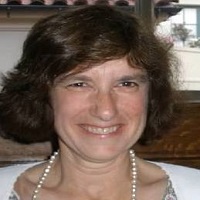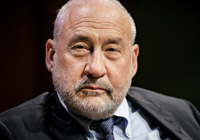Ananya Roy spent the summer in the hills overlooking Bellagio, Italy, watching fishing boats float out into glittering Lake Como — and thinking about poverty and inequality.
The first director of the Institute on Inequality and Democracy at UCLA Luskin was in residence at the Rockefeller Foundation Bellagio Center, a prestigious academic retreat where attendance at the after-dinner talks is mandatory and the dress code frowns on jeans. Roy used her time there to continue work on a book about poor people’s movements around the world.
While recent studies from the Pew Research Center and the United Nations have found that the share of people living in dire poverty worldwide has fallen in recent years, the income of most families has inched up just slightly. Moreover, the gap in living standards between the richest and poorest countries has barely narrowed and, as Roy emphasizes, poverty and inequality remain very much gendered, hitting poor women hardest. Their incomes and often their lives remain far more precarious than men’s. “The world did not make as much progress in reduction of maternal mortality rate as we’d hoped,” she noted as an example. “Women do not have to die when they give birth — and yet they do.”
Roy, 45, who speaks in complete paragraphs with a lilting Indian accent forged in her Calcutta childhood, arrived at UCLA in August after 16 years as a professor of city and regional planning at UC Berkeley.
Roy sees empowerment and activism as part of the solution to global poverty and inequality. She points to several countries that adopted painful austerity measures beginning in the 1980s, slashing government spending on education and health care. But revolts against those policies in Argentina and South Africa, for instance, “led governments to realize that they had a social debt to their people as well as a financial debt to other governments,” she said. “That pressure led to a new set of democratic policies.”
The same thing can happen in the United States, Roy believes, where debates about inequality have focused on the vanishing middle class. The question is not just about whether we Americans can reduce the concentration of wealth and power “but about who has a voice in our democracy, who can shape the future.”
Roy’s goals for the new Institute on Inequality and Democracy are both ambitious and provocative: to understand “the corrosive effects of the warehousing of wealth and power on civic life, and … to undo such inequality through new frameworks of redistributive policy and democratic politics.” Roy was drawn to Los Angeles, the city author David Reiff once termed “the capital of the Third World.” Roy sees it as a “wonderful microcosm” in which to think about these issues and experiment with solutions. The Justice for Janitors campaign for higher pay in Los Angeles during the 1990s, she noted, is an important model for her of how “some struggles can be quite effective at the local level.”
At Berkeley, Roy was both an international academic celebrity and an occasional thorn in the administration’s side. Her undergraduate course on global poverty regularly drew 700 students with a waiting list of 300; thousands have viewed her TED Talks and follow her Twitter feed. In even casual conversation, she weaves in references to the economist Joseph E. Stiglitz (also featured in this issue of Blueprint), feminist and civil rights advocate Audre Lorde and the poet Adrienne Rich, all of whom she credits as deeply influencing her work.
Roy sees activism — and sometimes insubordination — as the duties of a teacher. She joined the student protests over UC budget cuts and tuition hikes that began in 2009, then, following tense negotiations with former Berkeley Chancellor Robert Birgeneau, helped defuse what could have been a violent clash with local police. “My Berkeley students didn’t think of themselves as powerful. But I wanted my students to think about the power they have,” she said. “So I try to make them think about how ideas make change and to make them accountable for their ideas.”
She takes inspiration from Audre Lorde’s widely quoted line, “We may never be able to dismantle the master’s house.” But, Roy added, “Perhaps the tools of the master’s house can help us rebuild the world.”























